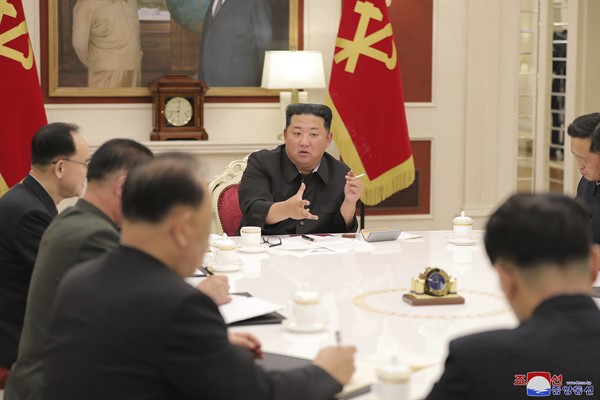Reliable and accurate data are supposed to be the bedrock of the global health governance system. Unfortunately, the coronavirus pandemic is demonstrating just how difficult it is to collect such information, and why this failure has so many consequences for national and international responses to infectious disease outbreaks.
Let’s use North Korea as an example. How many cases of COVID-19 have there been in the so-called Hermit Kingdom? If you ask North Korean government officials, the answer prior to the middle of May 2022 was zero—despite reports in the South Korean press that nearly 200 North Korean soldiers had died of the disease as early as March 2020. Since Kim Jong Un confirmed the first cases of the disease in May 2022, though, the estimated number of cases varies wildly. North Korean state media have reported nearly 1.5 million cases of “fever,” with outside experts believing that a large portion of those are COVID-19. The Coronavirus Resource Center website puts the figure of COVID-19 cases significantly lower, with 56 officially reported cases and one death, while the World Health Organization, or WHO, reports no official cases of COVID-19 in the country.
It might be easy to dismiss North Korea as an anomaly. The North Korean government is hardly known for its openness and transparency with the international community, and its officials have been known to stretch the truth in the past. Part of the problem for North Korea is that its health care system is incredibly fragile, with severe shortages of medicine and a lack of personnel. North Korea also has very little coronavirus testing capacity, no vaccines and a reputation for secrecy when it comes to sharing health data. Without accurate data, it is impossible for North Korean—or international—officials to devise an effective and robust response to the outbreak.

